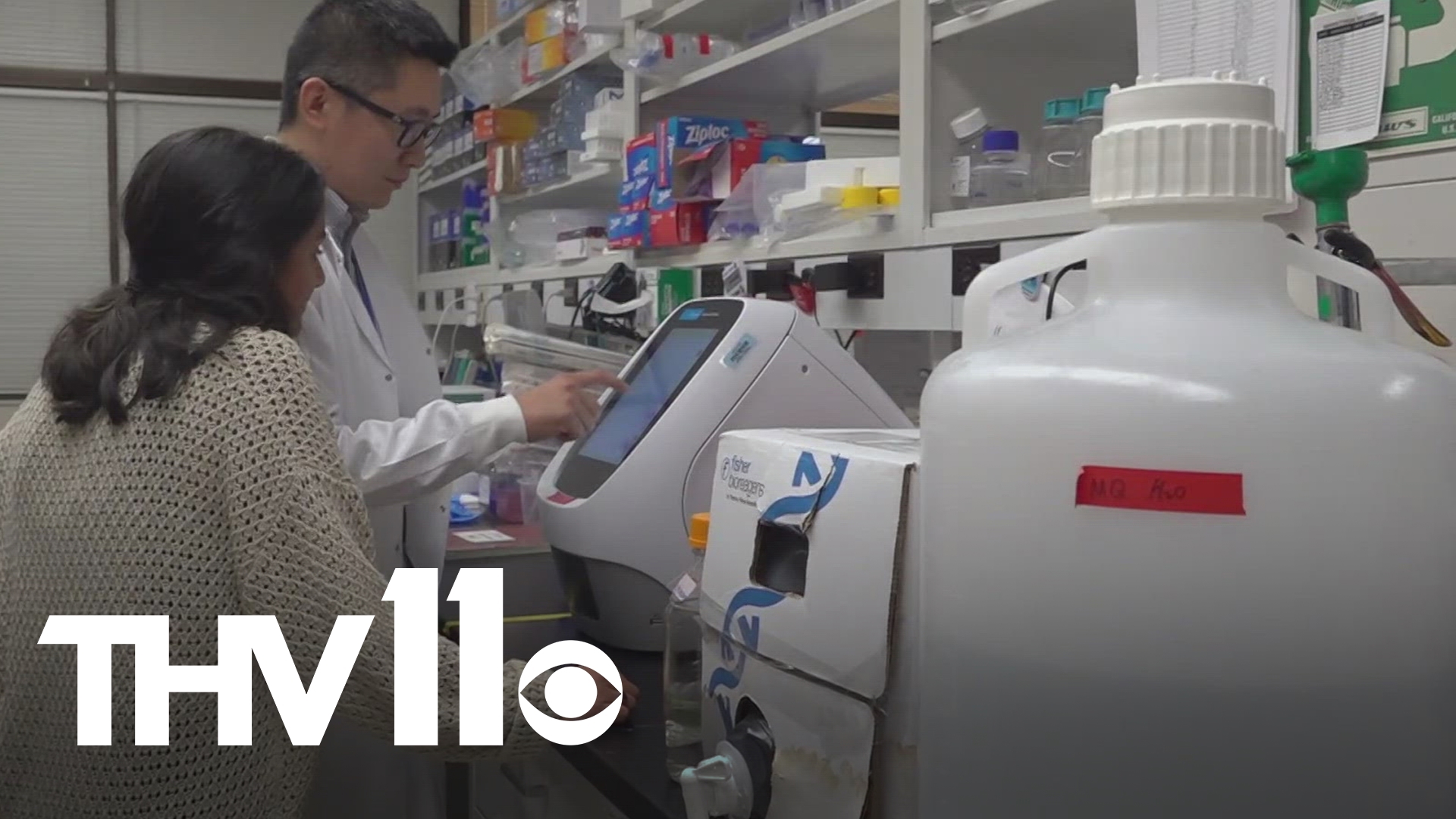LITTLE ROCK, Ark. — Tuberculosis cases are on the rise among adult and pediatric populations in the Natural State, according to the Arkansas Department of Health (ADH).
According to ADH, the department has recorded over 100 cases in the state since November of 2024— this is the first time in 15 years that Arkansas has eclipsed 100 tuberculosis cases in a year.
Tuberculosis is categorized as an airborne infection that usually attacks the lungs, but health experts said that the infection can also impact any part of the body including the kidney, spine, and brain.
Additionally, ADH officials said that just because you're infected with tuberculosis bacteria, that doesn't necessarily mean you'll become sick. Despite that, ADH officials emphasize that the disease can be fatal if left untreated.
As far as symptoms to look out for, ADH said that the following symptoms are common for those infected with tuberculosis:
- A cough for three weeks or more
- Chest pain
- Fever
- Night sweats
- Fatigue
- Unexplained weight loss.
ADH said that oftentimes, cases of tuberculosis are misdiagnosed as recurrent pneumonia or bronchitis.
Now, you may be asking yourself why there's a sudden rise in TB cases when doctors had the upper hand in keeping Tuberculosis at bay for many years.
According to Dr. Naveen Patil with UAMS, the pandemic holds clues to why Tuberculosis is spreading now.
Patil explained how since the COVID pandemic many people didn't seek care or treatment. So now we're experiencing the effects of that by seeing an alarming outbreak in TB cases.
"It spreads basically from close contact, so if you or your loved one has it and they are not diagnosed, it can spread to people like your friends and family," Dr. Patil said.
He explained how so far, the cases they have been treating are coming from specific populations.
"The African American population, Hispanic population, Pacific Islanders, the elderly population, the people who are immunocompromised, and children," Dr. Patil added.
He explained how it's very important to get infants and children tested as soon as you suspect something is wrong.
"Almost 40 cases are in children, which is scary because this disease can be very deadly," he added.
This means that health officials recommend screening for patients experiencing symptoms and for those with risk factors for severe disease.
Examples of risk factors include the following:
- Those exposed to known cases
- Those living in congregate settings
- Those with diabetes, cancer, organ transplants, kidney disease, HIV or a weakened immune system
If you have been exposed to tuberculosis, please contact the ADH TB Program at (501) 661-2152.

